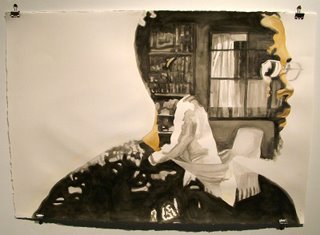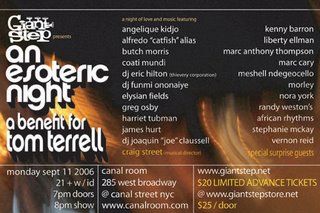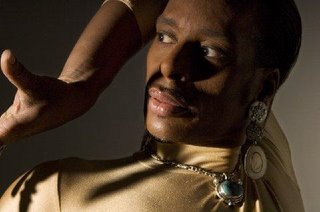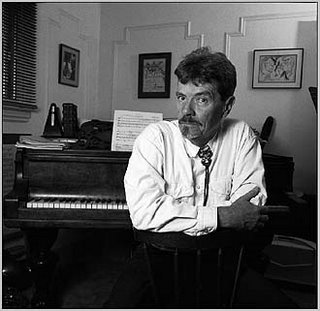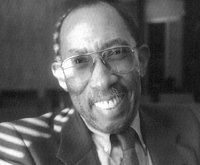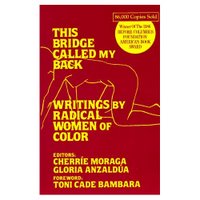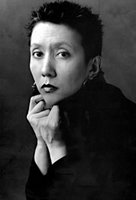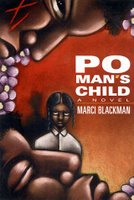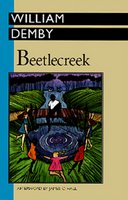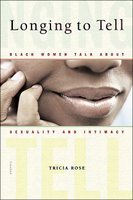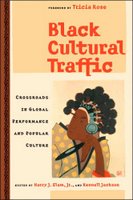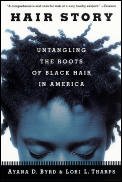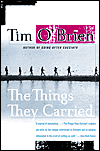Last Holiday: When Is a "Magic Negro"...Not....?

Unfortunately, with all the traveling I've pretty much forgotten what films I saw in August, and now it's almost October. I hardly watched any films last month with the notable exception of Little Miss Sunshine, which really is a funny as they say. I had forgotten what it was like to laugh explosively in a movie theater. It's such a rare experience for me these days. OK admittedly didn't get to that many movie theaters in the ATL, as it was a 3 hour round trip commute to most of them unless I wanted to watch the Rocky Horror Picture show, and the expiry date for that experience has long since popped up for me.
Last Holiday (2006) Dir. Wayne Wang. One other film stood out because I became addicted to watching it, in part because of the use of Nina Simone's "Feeling Good" while Queen Latifah's formerly choir mouse character luxuriates in first class after uttering the great lines "I am not flying to Prague with that man sitting in my lap" regarding a would-be big & tall shop customer who's complained because she won't let him lean his seat back (into her lap) and for emphasis "that's a big ol' boy!"(The referenced character/actor could be a stand-in for Brad Garrett of "Everybody Loves Raymond.") Before that there's the classic rendition of "Don't Wait Too Long" by Madeleine Peyroux which has the great line "if you think that time will change your ways, don't wait too long" the wordplay of which she interprets in such an understatedly knowing fashon it makes me smile everytime.
But when I first saw the movie I was disappointed(and despite being directed by Wayne Wang it's a "movie" not a film, but a higher class of "movie" than likely would have resulted if Wang hadn't been at the helm). After Queen Latifah's last cross-over mainstream live-action outing Bringing Down the House (2003) I was hoping she was done with the "Magic Negro" roles both in front of and behind the camera (word is despite all the oo's and ah's over the authenticity of Jason Filardi's screenplay, for a time making him the "go to" guy for hip urban comedy(his latest produced screenplay is Gangsta M.D.), it was actually the black actors on set, in particular Queen Latifah, who wrote the "realistic" black dialogue). Here Queen Latifah plays Georgia May Byrd, a meek but highly talented sales clerk working in the cookware department of a New Orleans store modeled as a downscale William Sonoma who finds out she only has three weeks to live. Here's a woman who has arranged with the boy next door to watch her car, which she never drives, in exchange for weekly gourmet meals for him and his grandmother. She doesn't partake of these meals either, instead sticking religiously to her Lean Cuisine and satisfying herself with digital photos of her great meals prepared while watching the Emeril Show. She can't even flirt with the guy she likes at work (LL Cool J), even though he's clearly attracted to her and gives her one of the ultimate compliments a southern man can bestow on a woman regarding her cooking, "that smell, it reminds of my mama's house." Of course as one might imagine, we've already been tipped off by the Peyroux song, Georgia gets mad at the safe life she's been living, get's mad at God, and then just gets mad and takes all her savings and flies to Prague to eat some of the best food in the world prepared by the legendary Chef Didier (Gerard Depardieu) I have no idea how they got Depardieu to be in this film, but he and Queen Latifah have great chemistry. Georgia gets honest with herself and others not having a lot of time to waste with indirect communication, but discovers a charm and bravery she didn't know she had and touches the lives of all those around her who in the main with the exception of the regularly underrated Giancarlo Esposito all happen to be white. Well, she is in Prague after all. But still I thought, damn another "magic negro" role! However, when I watched the DVD extras it turned out this was a remake of a 1950s Alec Guiness vehicle of the same name and the screenwriters adapted J.B. Priestly's originial screenplay, updating it to the present, well they did about twenty years ago, but they were so committed to the material that they kept shopping it around. Interestingly they were going for a more cynical edge that typified the British films of that time (Lavender Hill Mob, etc). But this became a hopeful, uplifting film with Georgia regularly dialoguing with God, and getting the happy ending she seems to deserve by the movie's close. Granted, when some British white male restrained agricultural machinery salesman discovers grand passion in the midst of a national change in class mores there are all sorts of wink-wink moments that can ensue. After all isn't the middle-class "nose to the grindstone" civil servant stoicism what is beginning to unravel? The few larger social commentaries Queen Latifah gets to play out in this remake are a sweet romance with an African American man (you only need part of one hand to count how often we get to see that), destroying her boss' cell phone with her shoe, and when a culturally and historically illiterate spa worker begins thrashing Georgia with a branch of Eucalyptus leaves as part of that day's treatment. What black person couldn't identify when Latifah
 snatched the branch out of her hand and began rhythmically giving as good as she had been given? Although there's little dialogue here, the mainly throat sounds and gestures nevertheless telegraph: "oh, hell no!" "you must be crazy!" "400 years of slavery and you think you're gonna beat me with some branch?!" "how do you like it, then?!" after which the worker retrieves the branch and coos "I do it with love" as she then lightly caresses Georgia with the leaves. That was one of the wildest things I've ever seen, only because of how much was said without any dialogue. It was all historical body memory, so strong that even the spa worker got that something larger than herself was at work to which she needed to be responsive.
snatched the branch out of her hand and began rhythmically giving as good as she had been given? Although there's little dialogue here, the mainly throat sounds and gestures nevertheless telegraph: "oh, hell no!" "you must be crazy!" "400 years of slavery and you think you're gonna beat me with some branch?!" "how do you like it, then?!" after which the worker retrieves the branch and coos "I do it with love" as she then lightly caresses Georgia with the leaves. That was one of the wildest things I've ever seen, only because of how much was said without any dialogue. It was all historical body memory, so strong that even the spa worker got that something larger than herself was at work to which she needed to be responsive.Still what does it mean to insert a black actor into a "magic" role? How does the actor or director manage to bypass the "magic negro syndrome" while still making it into a cross-over (read cast enough white characters to compell white audiences to buy tickets) success? Certainly that casting issue is a stickler. The black actor becomes a "negro" with magic to despense when those around her/him are almost solely made up from the majoritarian culture and for that matter the ruling class, or at least a few steps above the economic and social rung on which the black character is situated. Some of that magic needs to be in service to other black folks, the character can't be individuated away from his/her community of origin for the comfort of white folks or characters. The character needs to be rooted in her/his community. This the case with Georgia Byrd, in early scenes we see her at choir practice where she's still mousey and shy, and then with her young neighbor who she corrects when his language verges on the raw (it takes a village). But that's just the first quarter or third of the film for the rest of the time she's in the very white and European Prague, among an international cast where she arguably becomes the "international magic negro" one notable intervention on this construction is a Smokey Robinson concert she attends with her new "friends" politicians and the mistress of a corporate meglomaniac who, unbeknownst to him, owns the store where Georgia worked. Keeping with the formula, these stuffed shirts like her because her frankness is refreshing and of course entertaining. During the concert Smokey Robinson gives a downtempo and melancholy reading of his hit "Tears of a Clown" during which the lines "people say I'm the life of the party 'cause I tell a joke or two .....but deep inside I'm blue....take a good look at my face, you'll see the smile looks out of place, if you look closer it's easy to trace the tracks of my tears" have obvious resonance for the lead character. This scene of Georgia nodding along with Smokey is intercut with that of the hotel valet snooping through her belongings and finding Georgia's notes to her family for her funeral arrangements, at which point the normally cynical German woman lets out a deeply sighing, "Oh, Mademoiselle". Later it is this pointedly Teutonic character who offers, "I will be with you until the end" but soon after queries of Georgia "Why are you here with these awful people? You should be with people who love you." Giving us a little flip on usual domestic corpus that gets to deliver those maternal sorts of lines. But I am still left with the question, if you substitute Queen Latifah for Alec Guiness, does the fact of the "magic" having formerly belonged to a white male with a dry British sense of humor immunize a black woman stepping into the role some 56 years later against transmogrification into a "magic negro"?
August Films I remember
Antoine Doinel cycle (Truffaut) - excellent, but Truffaut was correct with the last film in this cycle. He felt he had created a character who never grew up, and had little personal ambition. And truly Doinel is a character who was eternally lonesome for mother, sister, lover and not very good at relating to women past his own needs. Too bad. (cycle titles: Les Quatre cents coups/The 400 Blows(1959), L'Amour à vingt ans/Love at 20(1962), Baisers volés/Stolen Kisses (1968), Domicile conjugal/Bed and Board(1970), L'Amour en fuite/Love on the Run(1979).
 Just One of the Guys (1985) Dir. Lisa Gottlieb. Another teen flick for research (ack!) this one is notable for having a female director (working from a male written script) and being completely absent African American characters, not surprising giving the production year--supposedly none of us lived out in the white suburbs back then...Nevertheless the trope of blackness or specifically, of the black male, is all over this movie about a girl who pretends to be a guy and attends another high school in order to get her paper submitted for a journalism competition as she feels she's experiencing gender bias from her own high school's journalism teacher. Turns out that teacher was on the money and even as a guy she's got some skills that need work. But her ability to convince strangers of her new gender's authenticy ends up turning on her ability to convincing deploy popular white culture notions of African American masculine gestures, vocal and externalized body movements as well. This is at the heart of the tutorial provided by her younger brother although it is never explicitly stated. It's a weird little picture that plays on gender and seems like the inspiration for the more recent, She's the Man (2006) which turns on a similar set of issue around gender-bias and also requires the gender-bending character (Amanda Bynes) to appropriate perceived gestural tropes of black masculinity to authenticate her performance.
Just One of the Guys (1985) Dir. Lisa Gottlieb. Another teen flick for research (ack!) this one is notable for having a female director (working from a male written script) and being completely absent African American characters, not surprising giving the production year--supposedly none of us lived out in the white suburbs back then...Nevertheless the trope of blackness or specifically, of the black male, is all over this movie about a girl who pretends to be a guy and attends another high school in order to get her paper submitted for a journalism competition as she feels she's experiencing gender bias from her own high school's journalism teacher. Turns out that teacher was on the money and even as a guy she's got some skills that need work. But her ability to convince strangers of her new gender's authenticy ends up turning on her ability to convincing deploy popular white culture notions of African American masculine gestures, vocal and externalized body movements as well. This is at the heart of the tutorial provided by her younger brother although it is never explicitly stated. It's a weird little picture that plays on gender and seems like the inspiration for the more recent, She's the Man (2006) which turns on a similar set of issue around gender-bias and also requires the gender-bending character (Amanda Bynes) to appropriate perceived gestural tropes of black masculinity to authenticate her performance.Drive Me Crazy (1999) Dir John Schultz Wr. Rob Thomas. Based on the novel How I created
 My Perfect Prom Date by Todd Strasser. Another teen flick for research. The film was apparently renamed with the prominently featured Britney Spears hit song of the title in mind. Like Get Over It (2001), (see the June list) this is surprisingly literate fare and Melissa Joan Hart exhibits greater emotional range than was possible on television's, "Sabrina the Teenage Witch". He face is rather flat, but in medium shot and close up she is capable of registering small flickers of emotional shift which is rewarding to watch. Without the current "leading lady look" she may have a hard time getting roles where she'll be allowed to really flex her nuances, and that's too bad. The writing here is quite solid giving actors Hart and co-lead Adrian Grenier some substance with which to work. Grenier is great here at leaving an impression like a wood stain on film; he seeps into the celluloid. I've wanted to see him do something interesting since his breakout role in The Adventures of Sebastian Cole (1998), that was almost ten years ago. I think his masculinity is a little too non-traditionally rangy, when not boxed into a more traditional character (which they can just get a more traditional actor to play), for directors to know how to utilize in an interesting manner. But speaking of the movie at hand, fortunately each of the main characters actually has a backstory--wow, what a novel idea!--which is slowly revealed over the course of their character development and explains much of their behavior and their particular emotional layers. Of course it reaches the classic conclusion: this is a boy meets girl, boy loses girl, boy gets girl back formula. But this film proves a formula can work when you concentrate on the journey and not the destination (which if the former is done well, will usual emerge more or less in organic fashion). Also the supporting characters of color are not used to create or subvert projections of "cool" within the narrative, they are pretty much authentically their own characters--again, what a novel idea.
My Perfect Prom Date by Todd Strasser. Another teen flick for research. The film was apparently renamed with the prominently featured Britney Spears hit song of the title in mind. Like Get Over It (2001), (see the June list) this is surprisingly literate fare and Melissa Joan Hart exhibits greater emotional range than was possible on television's, "Sabrina the Teenage Witch". He face is rather flat, but in medium shot and close up she is capable of registering small flickers of emotional shift which is rewarding to watch. Without the current "leading lady look" she may have a hard time getting roles where she'll be allowed to really flex her nuances, and that's too bad. The writing here is quite solid giving actors Hart and co-lead Adrian Grenier some substance with which to work. Grenier is great here at leaving an impression like a wood stain on film; he seeps into the celluloid. I've wanted to see him do something interesting since his breakout role in The Adventures of Sebastian Cole (1998), that was almost ten years ago. I think his masculinity is a little too non-traditionally rangy, when not boxed into a more traditional character (which they can just get a more traditional actor to play), for directors to know how to utilize in an interesting manner. But speaking of the movie at hand, fortunately each of the main characters actually has a backstory--wow, what a novel idea!--which is slowly revealed over the course of their character development and explains much of their behavior and their particular emotional layers. Of course it reaches the classic conclusion: this is a boy meets girl, boy loses girl, boy gets girl back formula. But this film proves a formula can work when you concentrate on the journey and not the destination (which if the former is done well, will usual emerge more or less in organic fashion). Also the supporting characters of color are not used to create or subvert projections of "cool" within the narrative, they are pretty much authentically their own characters--again, what a novel idea. All I Wanna Do/Strike! (1998) Dir. Sarah Kernochan
All I Wanna Do/Strike! (1998) Dir. Sarah KernochanAn overlooked potential gem which was set in 1963 at Miss Goddard’s, an all-girl’s boarding school with a girl’s points of views at its center which pretty much doomed it from the start as a commercial vehicle. Kernochan alluded to this in a Salon article on women directors in the late 1990s in which she talks about the studio wanting her to change certain elements and when she balked they put less money into the marketing. Apparently her version is the one that made it to home video. Here are a few other plot elements that caused the guys at the studio some discomfort with being asked to identify: 1)the crucial conflict is the school's board of trustees has voted to make the impoverished girls school coed to grease palms for a development deal. 2) Period piece with intelligent and non-sexy career (politics, psychiatry, publishing, only one intended actress) ambitious girls in knee-length three-piece uniforms thinking for themselves, when one girl says she wants to be an ex-virgin, another trills, "your grand ambition is to lay on your back with your legs in the air like a bug?!” 3) All white except for one Asian girl who is paired with the sole African American male St. Ambrose boarding school student when the two schools have a social day--in other words Kernochan actually references the exclusive racism in these types of schools which is elided in a more commercial star vehicle film in this tradition like, Mona Lisa Smile (2003). 4) Has realistic depictions of a character struggling with eating disorders, and her friends' attempts to help her 5) The only sex scene is a terrifically/horrifically humorous one in which the abovementioned student who after considerable machinations has snuck her boyfriend onto campus finds he has opted to bring a vaginal foam instead of the promised condoms for contraceptive, as they futilely attempt to load the plunger with the foam, all because a guy would prefer not to wear a jimmy. So despite the presence of emerging teen stars Kirsten Dunst and Rachel Leigh Cook, Dawson Creek bad-girl Monica Keena, former child star Gaby Hoffman and cult favorite Heather Matazarro (Welcome to the Dollhouse), without a serious theatrical release marketing campaign this was destined for a better life on DVD, which I think it now has.
 Can't Hardly Wait (1998) Dirs. Harry Elfont and Deborah Kaplan. Another teen flick for research. Oh my, this was part of a string of 90s teen sex/romance comedies that were eventually parodied (along with some of the classics from the 1980s) in Not Another Teen Movie aka "Ten Things I Hate About Clueless Road Trips When I Can't Hardly Wait to Be Kissed" (2001). I thought I was done with watching these until a friend told me about John Tucker Must Die(2006), yikes! OK so this is about how the good-hearted male and female freaks from high school really may inherit the earth, or at least become the true heroes of teen comedies about the last hurrah before college when it may become painfully apparent that the skills that put you on the top of the heap in high school are vulnerable to season-ending physical injuries, hair loss, and people realizing what a total druken idiot you actually are. The film is notable for the way it seriously skewers the suburban white boys who are desperately asserting their masculinity through the appropriating of their popular associations of black masculine vocal and other physical gestures. Sadly the filmmakers opt to have the boys get their final comeuppance through the physical retribution of a group of hostile African American teenage males who only appear in the film to play out that physical comedy--such as it is.
Can't Hardly Wait (1998) Dirs. Harry Elfont and Deborah Kaplan. Another teen flick for research. Oh my, this was part of a string of 90s teen sex/romance comedies that were eventually parodied (along with some of the classics from the 1980s) in Not Another Teen Movie aka "Ten Things I Hate About Clueless Road Trips When I Can't Hardly Wait to Be Kissed" (2001). I thought I was done with watching these until a friend told me about John Tucker Must Die(2006), yikes! OK so this is about how the good-hearted male and female freaks from high school really may inherit the earth, or at least become the true heroes of teen comedies about the last hurrah before college when it may become painfully apparent that the skills that put you on the top of the heap in high school are vulnerable to season-ending physical injuries, hair loss, and people realizing what a total druken idiot you actually are. The film is notable for the way it seriously skewers the suburban white boys who are desperately asserting their masculinity through the appropriating of their popular associations of black masculine vocal and other physical gestures. Sadly the filmmakers opt to have the boys get their final comeuppance through the physical retribution of a group of hostile African American teenage males who only appear in the film to play out that physical comedy--such as it is.
